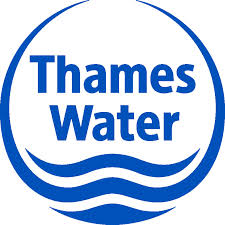Thames Water fined £220,000 for Polluting a Surrey river
I n a case brought by the Environment Agency, Thames Water Utilities Limited (Thames Water) were fined £220,000 and ordered to pay costs of £27,500 at Guildford Crown Court on 16 February for polluting the River Blackwater, a tributary of the River Loddon in Surrey.
n a case brought by the Environment Agency, Thames Water Utilities Limited (Thames Water) were fined £220,000 and ordered to pay costs of £27,500 at Guildford Crown Court on 16 February for polluting the River Blackwater, a tributary of the River Loddon in Surrey.
Thames Water was found guilty of breaching its environmental permit by allowing partially treated sewage and an illegal storm discharge to enter the River Blackwater. The pollution killed a significant number of fish, including Roach, Gudgeon, Minnow, Perch, Dace and Chub. The river flows through a SSSI (Site of Special Scientific Interest).
The case was first heard on 16 September 2014 in Redhill Magistrate Court. Given the serious nature of the offences, the case was committed to Guildford Crown for sentencing where higher penalties could be imposed. The court heard Thames Water plead guilty to breaching their environmental permit and causing pollution to an environmentally sensitive site on 7 September and 30 September 2012, when illegal discharges of polluting effluent occurred from their sewage treatment works (STW) located on Doman Road in Camberley.
The Environment Agency received reports of dead fish at Shepherd Meadows Nature Reserve at midday on 7 September 2012. Environment Agency officers responded quickly and observed distressed, gasping and dead fish in the river margins from Blackwater train station to Shepherds Meadow, nearly 2 kilometres downstream of the STW.
The problem at the STW led to partially treated effluent being discharged into the river, which had the effect of suffocating fish in its path by depriving them of oxygen over a distance of approximately 1.5 kilometres.
At court, Thames Water blamed its contractors for causing it to commit the offence. Judge Lucas QC did not accept this mitigation. The Judge concluded that the company had been reckless in relation to the incident and that significant environmental harm had been caused by the incident.
Andrew Valantine, Senior Environment Agency officer said:
Unfortunately this was a serious incident which led to fish being killed and the water quality being badly affected over a significant stretch of the river. Our team responded immediately by using aeration units to quickly pump much needed oxygen back into the river and reduce any further impact from the sewage works.
The Court also heard how on 30 September 2012 Thames Water reported to the Environment Agency that there was an illegal storm discharge from their storm tanks at the same STW. The discharge of effluent into the river via the storm tanks lasted an hour. In an interview under caution, the company accepted that it was not rainfall or snowmelt that caused this discharge but rather a build up of rags (toilet paper and sewage debris etc) creating a blockage which diverted screened raw sewage to the storm tanks rather than going for full treatment. This resulted in storm tanks filling and an illegal discharge of sewage into the River Blackwater. Judge Lucas concluded that the company was negligent in allowing the blockage to occur, and that a discharge of that nature would have resulted in some harm to the water quality.
Andrew Valantine added:
We take these types of incidents very seriously and will do everything within our powers to safeguard the environment and people affected, and that includes bringing those who harm the environment to account for their actions.
Judge Lucas QC stated that:
It is important that the courts send out a clear message to Thames Water and all companies operating in this sector. Regulations are there to protect the environment and that the courts will act firmly where regulations are breached and where the environment is either damaged or put at risk of damage.
 n a case brought by the Environment Agency, Thames Water Utilities Limited (Thames Water) were fined £220,000 and ordered to pay costs of £27,500 at Guildford Crown Court on 16 February for polluting the River Blackwater, a tributary of the River Loddon in Surrey.
n a case brought by the Environment Agency, Thames Water Utilities Limited (Thames Water) were fined £220,000 and ordered to pay costs of £27,500 at Guildford Crown Court on 16 February for polluting the River Blackwater, a tributary of the River Loddon in Surrey.
